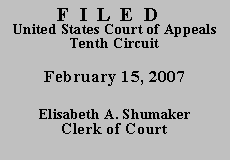

| HERBERT E. MORTON, JR., |
|
| v. | |
| RAY ROBERTS, Warden, El Dorado Correctional Facility; PHILL KLINE, Attorney General of Kansas, |
Morton was convicted in Kansas state court on charges of aggravated kidnaping, aggravated battery, and domestic battery. On direct appeal, the Kansas Court of Appeals affirmed the aggravated kidnaping and domestic battery convictions, reversed the aggravated battery conviction on the ground the trial court erred in failing to give a lesser-included-offense instruction, and remanded for further proceedings in the district court. The Kansas Supreme Court denied review. Thereafter, Morton filed a "Motion to Correct Illegal Sentence" in the trial court. In that motion, Morton asserted that in setting aside the aggravated battery conviction, the Kansas Court of Appeals had eliminated the only conduct that could have supported the bodily harm element of the aggravated kidnaping conviction. Thus, according to Morton, the trial court was obligated to set aside his aggravated kidnaping conviction. Relying on the misdemeanor domestic battery conviction, the trial court denied Morton's motion. On appeal, the Kansas Court of Appeals concluded the trial court had erred in relying on Morton's domestic battery conviction to support the bodily harm element of the aggravated kidnaping conviction. The Kansas Court of Appeals nevertheless affirmed the denial of Morton's motion, concluding the jury was properly instructed on the elements of aggravated kidnaping and that there was ample independent evidence at trial to support the jury's finding of bodily harm. The Kansas Supreme Court denied review.
Morton then filed the instant § 2254 habeas corpus petition. In response, the district court issued a lengthy and comprehensive memorandum and order directing Morton to show cause why his § 2254 petition should not be dismissed as untimely under the provisions of 28 U.S.C. § 2244(d)(1). When Morton failed to offer a substantive response to the district court's calculations as to the running of the statute of limitations, the district court dismissed Morton's petition because, inter alia, it was untimely.
A COA will issue "only if the applicant has made a substantial showing of the denial of a constitutional right." 28 U.S.C. § 2253(c)(2). To satisfy this standard, Morton must show "that reasonable jurists could debate whether (or, for that matter, agree that) the petition should have been resolved in a different manner or that the issues presented were adequate to deserve encouragement to proceed further." Slack v. McDaniel, 529 U.S. 473, 484 (2000) (quotation omitted). That is, Morton must show the district court's resolution of his petition was either "debatable or wrong." Id. Because Morton's petition was dismissed on procedural grounds, he must make both a substantial showing of the denial of a constitutional right and also show "jurists of reason would find it debatable . . . whether the district court was correct in its procedural ruling." Id.
On appeal, Morton does not even address the district court's conclusion that his § 2254 habeas petition is barred by the statute of limitations set out in § 2244(d)(1). Accordingly, he has completely failed to carry his burden of demonstrating the district court's procedural ruling is reasonably subject to debate. Morton's request for a COA is DENIED and his appeal is hereby DISMISSED.
Entered for the Court
Elisabeth A. Shumaker, Clerk
By:
Deputy Clerk